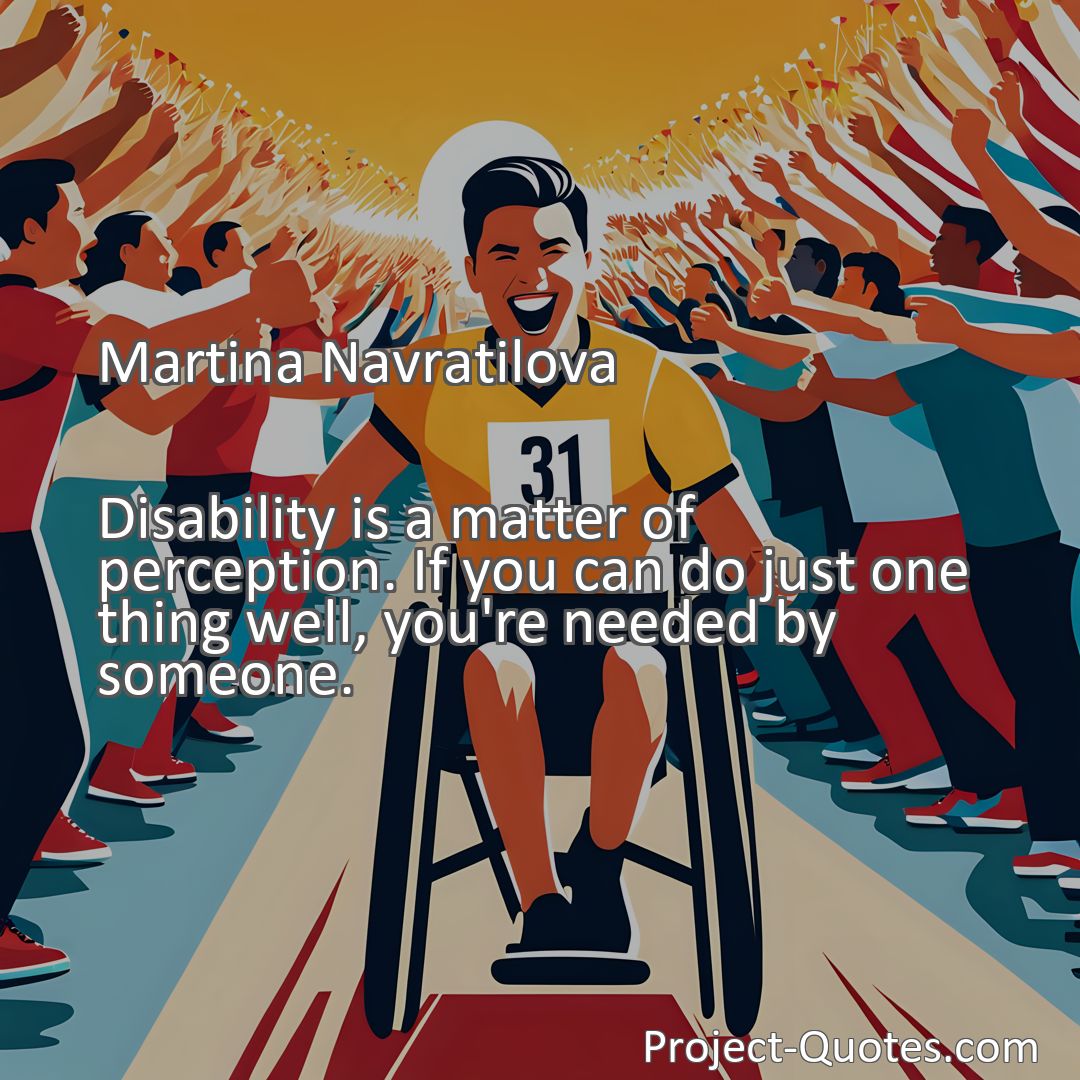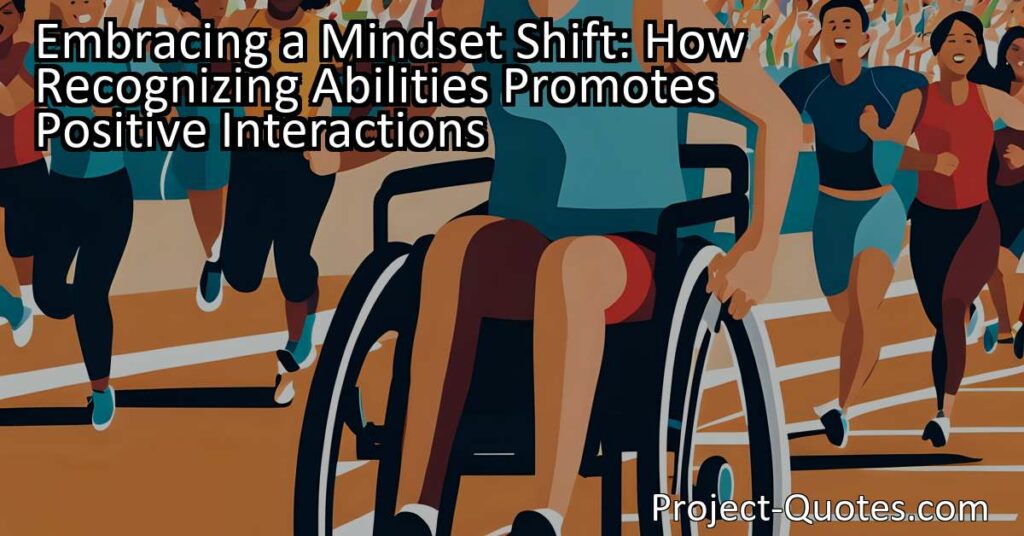Disability is a matter of perception. If you can do just one thing well, you’re needed by someone.
Embracing a Mindset Shift: How Recognizing Abilities Promotes Positive Interactions By shifting our mindset to focus on recognizing the unique abilities and talents of individuals rather than fixating on their limitations, we foster a society that promotes positive interactions. Embracing such a mindset shift fosters inclusivity, empathy, and collaboration, creating a more compassionate and accepting community.
Table of Contents
Meaning of Quote – Disability is a matter of perception. If you can do just one thing well, you’re needed by someone.
In our diverse world, there exists a wide range of abilities and disabilities. Some individuals may excel in physical activities, while others possess exceptional cognitive skills. However, disability isn’t limited to a lack of physical or mental capabilities. Martina Navratilova, a renowned tennis player and author, once said, “Disability is a matter of perception. If you can do just one thing well, you’re needed by someone.” Her insightful words highlight the importance of recognizing the value and contributions of individuals, regardless of their perceived limitations.
What does it mean to have a disability? Often, people associate disabilities with visible impairments such as paralysis, blindness, or deafness. While these conditions certainly fall under the umbrella of disabilities, it is essential to understand that disabilities come in many forms. Some disabilities are invisible, including mental health disorders, learning disabilities, and chronic illnesses. The perception of disabilities is subjective, as what one person may consider a limitation, another might view as an opportunity for growth and adaptation.
Navratilova’s quote emphasizes the notion that even if someone has limitations in various areas, they possess at least one exceptional skill or talent. This perspective promotes inclusivity and encourages society to embrace and acknowledge the unique expertise individuals contribute, rather than fixating on their perceived shortcomings.
Every individual has something unique to offer and can make a meaningful impact in the lives of others. Whether it’s through a talent, a passion, or an ability to empathize and support others, each person brings something valuable to the table. By recognizing and appreciating diverse skills and capabilities, we can create a more inclusive and compassionate society.
When we shift our perception of disabilities from focusing on the limitations to celebrating individual strengths, a world of opportunities opens up. Instead of defining people solely by their disabilities, we should celebrate their accomplishments, aspirations, and contributions. Disability, as Navratilova suggests, should be seen as a matter of perception rather than a rigid classification.
Think about individuals who have made significant breakthroughs in various fields despite their disabilities. Scientists like Stephen Hawking, who advanced our understanding of the universe while living with amyotrophic lateral sclerosis (ALS), or artists like Frida Kahlo, whose incredible artwork captured her experiences with chronic pain and disability. These individuals demonstrate that disability is not a barrier to success or a limiting factor in achieving greatness.
Furthermore, individuals with disabilities often possess remarkable resilience, adaptability, and determination. Their experiences navigating a world that may not be designed with inclusivity in mind provide them with unique insights and problem-solving abilities. By recognizing the value of these perspectives, we can tap into a vast pool of untapped potential.
Inclusion and equal opportunities are crucial when it comes to embracing the talents and skills of individuals with disabilities. By providing accessible education, workplace accommodations, and promoting inclusive policies, we empower individuals to showcase their abilities. This not only benefits those with disabilities but also enriches society as a whole.
Imagine a workplace that actively seeks to include individuals with disabilities. By doing so, they tap into a pool of diverse perspectives that can lead to groundbreaking innovation and creative problem-solving. People with disabilities often possess alternative ways of thinking and approaching challenges, granting them a unique edge in finding effective solutions.
Moreover, when we recognize individuals’ abilities rather than fixating on their disabilities, we create an inclusive society that fosters empathy, understanding, and acceptance. This mindset shift promotes positive interactions and reduces stigma around disabilities. It encourages us to focus more on what brings us together rather than what sets us apart.
Let’s not forget that each one of us experiences moments of vulnerability in our lives, be it due to personal setbacks, temporary limitations, or unexpected challenges. Disability, therefore, is not restricted to a specific group of peopleit’s a shared human experience. Embracing this shared vulnerability and supporting one another fosters empathy and compassion.
In conclusion, Martina Navratilova’s quote reminds us that disability isn’t solely defined by limitations, but rather by the unique skills and talents individuals possess. Embracing an inclusive mindset and recognizing the value of each person’s abilities benefits society as a whole. By challenging our perceptions, prioritizing equal opportunities, and celebrating what people can do rather than what they cannot, we foster a society that thrives on diversity, acceptance, and collaboration. Remember, if you can do one thing well, you are needed by someone.
I hope this quote inspired image brings you hope and peace. Share it with someone who needs it today!


